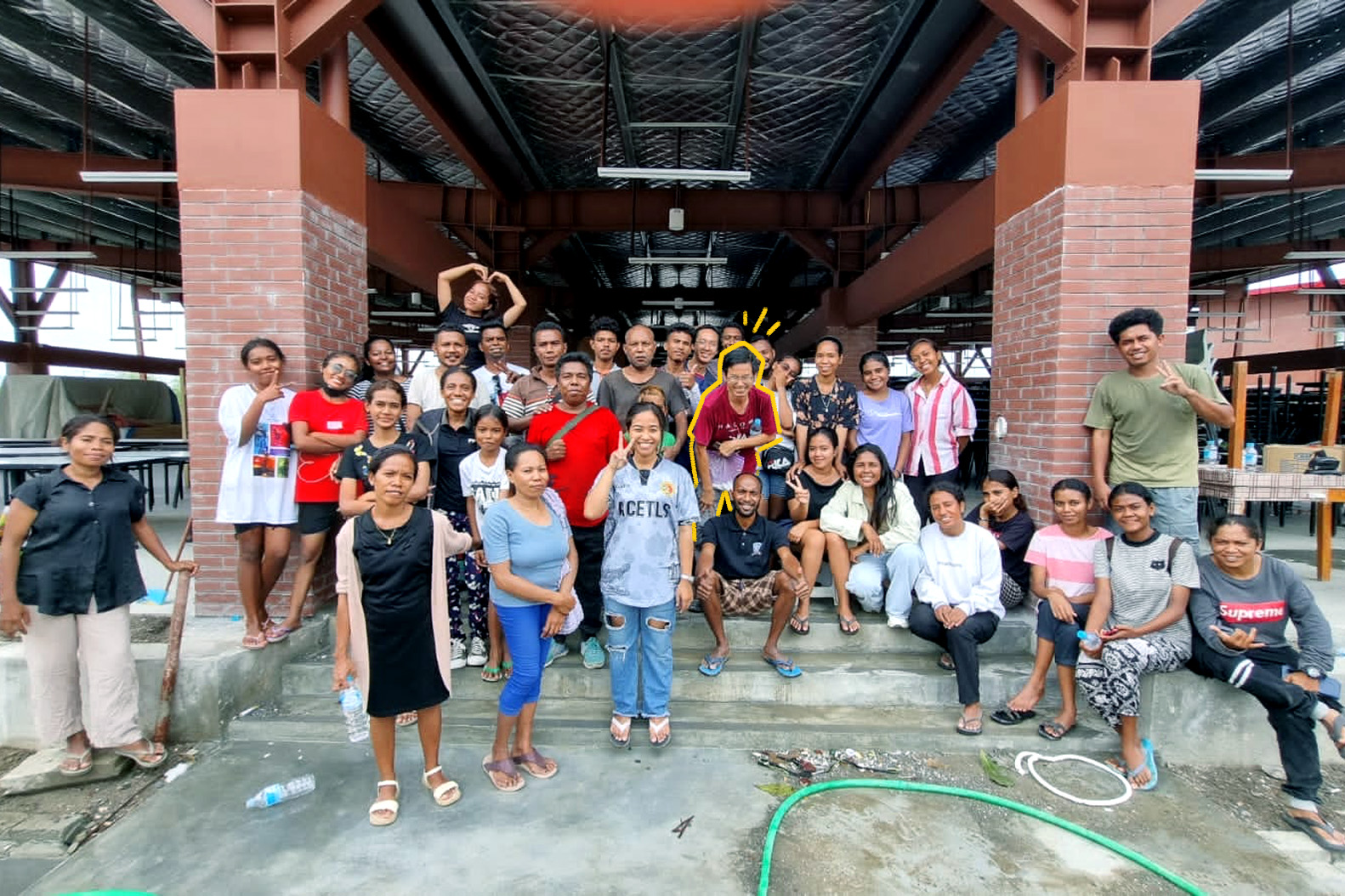Early last year, I joined a Life Group (LG) with Singapore Youth for Christ (SYFC).
LG took place on weekday afternoons after school, and it was like a cell group that focused on equipping students to share the gospel within their social circles and with strangers (street evangelism).
Initially, I thought it was really “extra” and a waste of time. I felt like my hands were already full with church, cell group and the busyness of school!
It hasn’t been an easy journey, but God has since convinced me of the importance of evangelism, and why it’s more important now than ever.

We know Jesus’ death as the greatest sacrifice made in human history, and his resurrection as the greatest triumph.
We have a greater measure of knowledge about God’s goodness, righteousness and salvation today than people who lived in ancient times. What then is our response to this greater measure of knowledge?
I would say mine has been a pretty muted one – nothing compared to what is mentioned in this psalm.
“As for me, I will always have hope; I will praise you more and more.
“My mouth will tell of your righteousness, of your salvation all day long – though I know not its measure. I will come and proclaim your mighty acts, Sovereign Lord; I will proclaim your righteousness, yours alone.
“Since my youth, O God, you have taught me, and to this day I declare your marvellous deeds. Even when I am old and grey, do not forsake me, my God, till I declare your power to the next generation, your might to all who are to come.” (Psalm 71:14-18)
This was the psalmist’s response to God in an era before Jesus was born. What about us who have Jesus?
My friend also shared these verses in Deuteronomy with me during the holidays. I was with him in school just to pray, and as he shared, I felt it was strangely impactful.
“The Lord our God said to us at Horeb, “You have stayed long enough at this mountain. Break camp and advance into the hill country of the Amorites; go to all the neighbouring peoples in the Arabah, in the mountains, in the western foothills, in the Negev and along the coast, to the land of the Canaanites and to Lebanon, as far as the great river, the Euphrates.
“See, I have given you this land. Go in and take possession of the land the Lord swore he would give to your fathers – to Abraham, Isaac and Jacob – and to their descendants after them.” (Deuteronomy 1:6-8)
In the passage, God told the Israelites that they had stayed long enough at Horeb (Mount Sinai) – a place associated with the deep religiosity of Old Covenant works and laws – and that it was time for them to move in faith to a place of God’s promise.
It is also important to note that the Amorites and the Canaanites were Israel’s enemies. So God was actually calling Israel into enemy territory.
This meant Israel would face conflict and war should they choose to go to the Promised Land.

As I reflected on this passage, I discovered it to be reminiscent of God’s call to us as disciples.
I see it as a wake-up call to those of us in comfort and slumber – to the sleeping church that it’s time to awake and take action. I see it as call for us to depart from a place of ritualism and “doing religion”, and move to a place of radical faith and obedience.
God’s promise to us is not a physical plot of land when it comes to the work of evangelism, but amidst all the possible conflict and persecution, when we resolve to relentlessly pursue God and to tell of His righteousness and salvation, He has promised us His power (2 Peter 1:3-4), He has promised us breakthrough (Mark 16:17) and above all, He has promised us Himself (Matthew 28:20).
Nobody said it was going to be easy. I don’t deny that God’s call for us to “go into all the world and preach the Good News to everyone” sounds utterly dangerous and terrifying. But is it not more dangerous and terrifying if we were to not do it?
When we examine Jesus’ journey to the cross, we realise that He didn’t die at the hands of muggers, rapists, and thugs – He was crucified by the well-scrubbed hands of a people who were deeply religious.
In the same way, when we only “do religion” in church, and fail to be as missional as Jesus intended us to be, we put to death every opportunity to plant seeds of the gospel and impact the people around us.
He didn’t suggest we make disciples, He commanded us to do so.
The mission is clear.
Jesus said to his disciples: “All authority in heaven and on earth has been given to me. Therefore go and make disciples of all nations, baptising them in the name of the Father and of the Son and of the Holy Spirit, and teaching them to obey everything I have commanded you. And surely I am with you always, to the very end of the age.” (Matthew 28:18-20)
He didn’t suggest we make disciples – He commanded us to do so. Both Psalm 71 and Deuteronomy 1 point to the same message. So will you take action?
This article was first published on Eugene’s blog and is republished with permission.
- What are some ways we “play church”?
- What does an authentic Christian look like?
- What is the Great Commission?
- How can you share God’s love right where you are?









